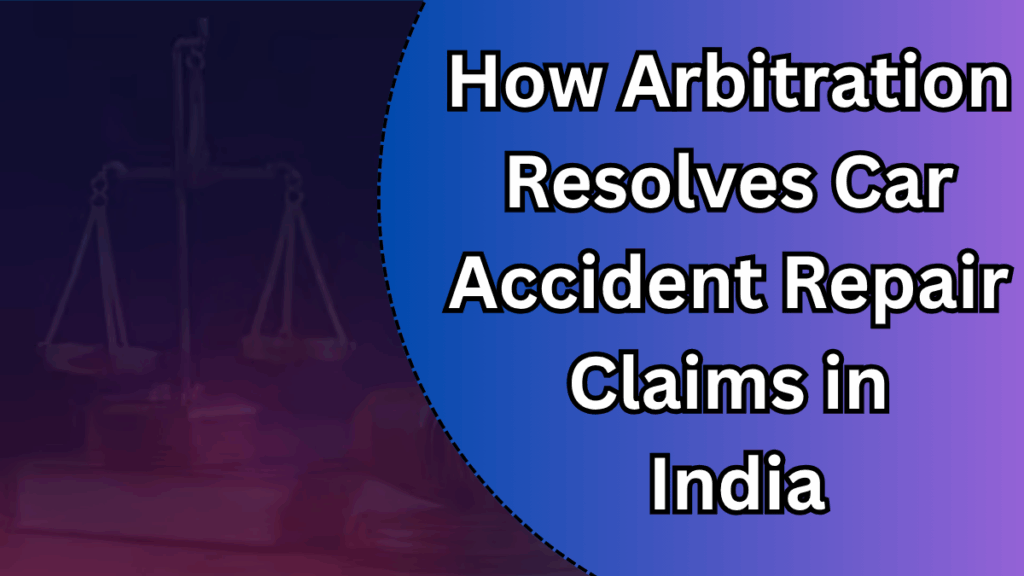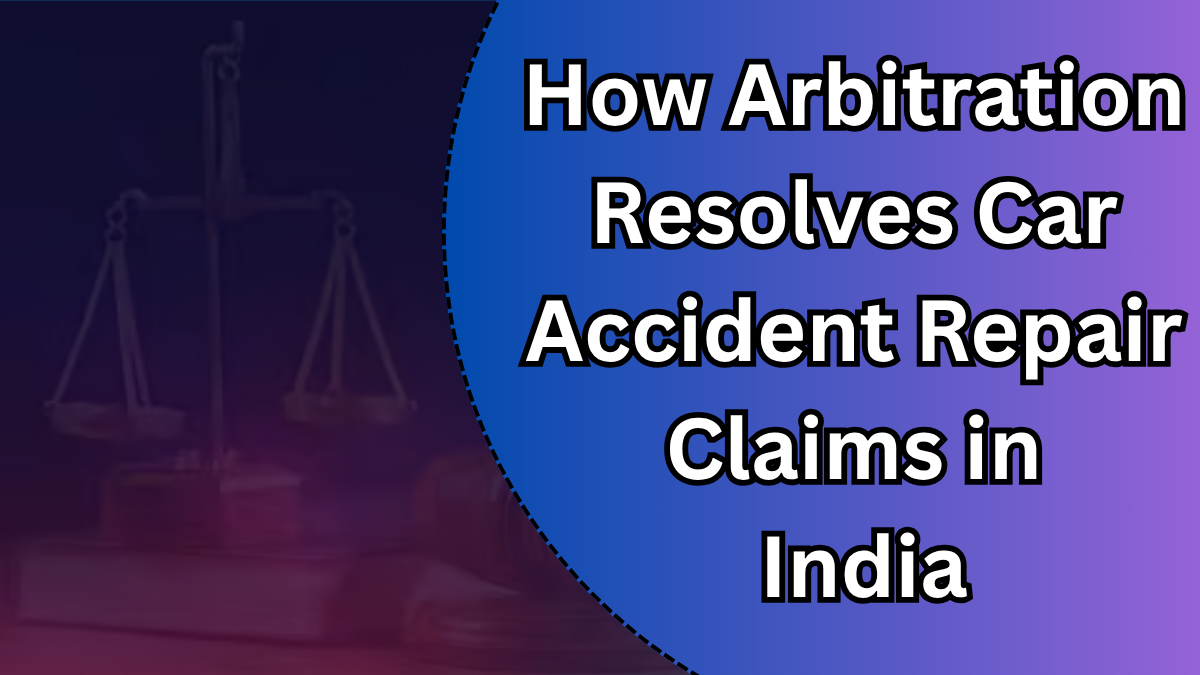Car accidents are stressful—not just because of the damage but also because of the lengthy battles that can arise over car accident repair claims. In 2025, with more vehicles on the road and stricter motor insurance rules, disputes between policyholders and insurers are becoming increasingly common. This is where arbitration steps in as a faster, cost-effective way to resolve motor insurance disputes.
Let’s break down how arbitration works and why it’s transforming the way Indians handle car accident repair claims in 2025.

Why Do Car Accident Repair Claims Often Lead to Disputes?
Insurance claims sound simple in theory, but in reality, they often lead to disagreements. Some common causes include:
-
Disagreement over repair costs – Insurers may approve a lower estimate than the actual repair cost
-
Rejection of claims – Policies may be denied for technical reasons like late intimation or non-disclosure
-
Delays in claim settlement – Lengthy paperwork and back-and-forth between garages and insurers
-
Disputes over liability – When multiple parties are involved, determining who is at fault can be complex
These challenges often push policyholders toward legal action—something time-consuming and expensive. Arbitration now offers a simpler alternative.
What Is Arbitration in Motor Insurance Disputes?
Arbitration is a legal method where an impartial third party (the arbitrator) helps both parties—policyholders and insurers—reach a resolution without going to court.
Why Arbitration Works
-
Faster resolution than traditional litigation
-
Lower costs compared to court battles
-
Less stress for policyholders dealing with post-accident trauma
How Arbitration Resolves Car Accident Repair Claims in 2025
Arbitration in car accident repair claims 2025 has evolved into a structured process. Here’s how it works:
Step 1: Filing for Arbitration
The insured submits a formal request for arbitration after a dispute with the insurer.
Step 2: Appointment of Arbitrator
A neutral arbitrator is appointed (mutually agreed upon by both parties or assigned by an arbitration body).
Step 3: Evidence & Hearings
Both sides present documents—repair bills, accident reports, policy documents—and their version of the case.
Step 4: Decision
The arbitrator delivers an award (decision) that is legally binding on both parties.
Arbitration vs. Court: Which is Better?
| Aspect | Arbitration | Court Proceedings |
|---|---|---|
| Time Taken | 1–3 months | 6–24 months |
| Cost | Low | High |
| Complexity | Simple & less formal | Highly formal |
| Confidentiality | High | Limited |
Benefits of Arbitration for Policyholders
-
Quick settlements – No more waiting months for a court verdict
-
Cost efficiency – Affordable compared to full-scale litigation
-
Less paperwork – Arbitration processes are simpler and require fewer formalities
-
Neutral decisions – Arbitrators ensure fairness to both insurers and policyholders
FAQs
1. Is arbitration legally binding in motor insurance disputes?
Yes. In most cases, the arbitrator’s decision is final and legally enforceable.
2. Can I approach arbitration without a lawyer?
Yes, though having legal advice can strengthen your case.
3. What types of disputes qualify for arbitration?
Arbitration covers claim rejections, underpayments, delays, and disagreements over repair estimates.
4. How long does arbitration for car accident repair claims take in 2025?
Most cases are resolved within 1–3 months, making it significantly faster than court trials.
Final Thoughts
In 2025, arbitration has emerged as a game-changer for motor insurance disputes, helping car owners get their claims resolved quickly and fairly. If you’re stuck in a long battle over your car accident repair claim, arbitration might just be the practical solution you need.
Click here to learn more
